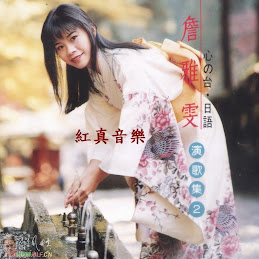By The New Paper, 31 May 2021 at 06:00 am
Picture posted by Tabitha Faith on 10 September 2019
https://blogger.googleusercontent.com/img/b/R29vZ2xl/AVvXsEiE0AkXIVEll3IGFIb8mOvfx4v3UmoQp6FqCSO1iAt2DtJGOV6zwJdZoMEPLhxN7JxEoWvvi-uSPk8lbxXwlOovvp3qSdnLC3O_fjn1fJskJwxLyZmwuOtx3pFhuEQvYUGerNicUKjKVb0/s1440/P9081950.jpg
https://www.tabithafaith.com/wp-content/uploads/2019/09/P9081950.jpg
https://www.tabithafaith.com/the-curvy-girl-guide-to-bras/
Love, hope, empathy, gratitude and happiness can even up your pain threshold.
You may have heard this before. Being optimistic helps you steer clear of heart diseases, reduces stress and keeps blood pressure low.
Here is how these five positive emotions - love, hope, empathy, gratitude and happiness - benefit your body.

PHOTO: REUTERS
Picture posted by The New Paper on 31 May 2021 at 06:00 am
https://blogger.googleusercontent.com/img/b/R29vZ2xl/AVvXsEis-iQBTGClzZWbtB_b6DvFeXSzpDM29waSmrXgTD3FH1i-8p8YZInS14OLYRLmE5lOpIEaROAv4CUyt9cqpi_MT9YcjUunigSJemcBIolPaJwpeYqP57yXWFroMhpmzU12I7Hd0MQBh0Y/s780/NP_20210531_EMO31A_6579707_1.jpg
https://www.tnp.sg/sites/default/files/styles/rl780/public/articles/2021/05/31/NP_20210531_EMO31A_6579707.jpg?itok=5RD7lmA5
https://www.tnp.sg/lifestyle/health/five-emotions-deliver-plenty-healthful-benefits
WHEN YOU ARE IN LOVE
Your body produces adrenaline and norepinephrine in the early days, which make your heart race, and dopamine to make you feel euphoric.
Oxytocin and vasopressin, which are hormones that create feelings of well-being and security, take over in established relationships to maintain the bond.
Health benefit: New couples have a higher pain threshold because intense love stimulates areas of the brain targeted by painkillers.
In the long term, love reduces your heart disease risk and protects against a middle-age decline in life satisfaction. It also minimises how much cortisol - the stress hormone - you produce when under strain.

Your body produces adrenaline and norepinephrine in the early days, which make your heart race, and dopamine to make you feel euphoric.
Oxytocin and vasopressin, which are hormones that create feelings of well-being and security, take over in established relationships to maintain the bond.
Picture posted by Andrew David - Scarlett Madison
https://blogger.googleusercontent.com/img/b/R29vZ2xl/AVvXsEjfq71tkTHwjA_nVFaUchRtGzguiO_iiHl4MSSWcGNEs-lSS_IIAoWC47vEmc2g64y2f1t75MFuZy9uAvPslUFLsh1TrnPpHm3Mh0y_rDXvmuD-SVjJMSe1eOpIJe1SoBGnDslvXWnztCw/s1024/tumblr_n2oxizpq2B1qcfz51o1_1280_1.png
https://64.media.tumblr.com/d09f7a6b0f1264fde835ba7140b5b379/tumblr_n2oxizpq2B1qcfz51o1_1280.jpg
https://www.pinterest.com.mx/pin/506655026803773203/
Get that feeling: Increase the feeling by watching and talking about movies with your partner where relationships are the focus.
When couples did this five times for one month, they improved their relationships and halved their risk of splitting up.
Single? Book in for a massage or hug a dog - both strategies increase oxytocin, the bonding hormone responsible for a lot of love's health benefits.

Get that feeling: Single? Book in for a massage or hug a dog - both strategies increase oxytocin, the bonding hormone responsible for a lot of love's health benefits.
Picture posted by Picturing Scarlett on 21 April 2015
https://blogger.googleusercontent.com/img/b/R29vZ2xl/AVvXsEgadeqff3MbI0xloxeipMAJ67FjM2JkOnCIChGoxvmdRdmDfmbIHSBq6sxGlMp1Bq7XXtFGQMujKMjxkz1qLAG-CvOuFuE1LlW7INOU6UeYQmfCH0vrzJ2bRK3joFo5X3GZM9cs-fwTpD8/s800/11149425_1041859679198058_8599893139426595967_n_1.png
https://scontent.fsin9-2.fna.fbcdn.net/v/t1.18169-9/11149425_1041859679198058_8599893139426595967_n.jpg?_nc_cat=103&ccb=1-3&_nc_sid=9267fe&_nc_ohc=s-PlPO7rpWgAX8ZU27A&tn=sM-76T1B-VMUBVbg&_nc_ht=scontent.fsin9-2.fna&oh=6507e0f89d59c42abdfb381f901b2d0d&oe=60DC3A3B
https://www.facebook.com/PicturingScarlett/photos/a.185137354870299.61375.162137580503610/1041859679198058/?type=1&theater=
WHEN YOU FEEL HOPEFUL
The parts of the brain responsible for you thinking positively (the rostral anterior cingulate cortex and amygdala) fire up.
Health benefit: Feeling cheery improves how your immune cells respond when confronted with a virus or bacteria.
 PHOTO: WHEN YOU FEEL HOPEFUL
PHOTO: WHEN YOU FEEL HOPEFULThe parts of the brain responsible for you thinking positively (the rostral anterior cingulate cortex and amygdala) fire up.
Health benefit: Feeling cheery improves how your immune cells respond when confronted with a virus or bacteria.
Picture posted by Pac Ma, tumblr - Marina Ruy Barbosa, Brazilian redhead
https://blogger.googleusercontent.com/img/b/R29vZ2xl/AVvXsEi3LBvuMNGw9XXvGtsqSXxkUecORW2s-FOraCdxON3X0Wfqnqx_754Iy3vlR1G3wEnt9SrXkMW8M0oIHRkCZeJaqbB5f-it4LKlZO9CJo70N-Rw5ckPTuoxNm6gS-KUF5oJks93RVe5PrA/s1680/tumblr_899b772a33cf1ad033ddc166d01ec88b_85110f83_1280.jpg
https://64.media.tumblr.com/627323c8f011a0a778391aa7e70f3017/tumblr_pyrcjeqjIT1y89nuso1_1280.jpg
https://pacma11.tumblr.com/post/622586320820355072/marina-ruy-barbosa/amp
You will also find making healthy food choices easier because feeling expecting the best for the future boosts self-control.
Get that feeling: Increase the feeling by watching a funny movie. After just 15 minutes, your "hopefulness score" will be higher. Researchers say it works because humour inhibits negative thoughts.
WHEN YOU FEEL EMPATHETIC
Your brain increases production of oxytocin and triggers a network of brain neurons, simultaneously suppressing the network you use to analyse things.
Health benefit: Feeling empathetic increases how generous you feel towards people, which improves your health and lifespan. You will feel happier on average too.

Your brain increases production of oxytocin and triggers a network of brain neurons, simultaneously suppressing the network you use to analyse things.
Health benefit: Feeling empathetic increases how generous you feel towards people, which improves your health and lifespan. You will feel happier on average too.
Picture saved by mark to Red Head Hotter - Amarna Miller, Spanish actress
https://blogger.googleusercontent.com/img/b/R29vZ2xl/AVvXsEiRf4ugvK55F4aQhDc4_FHAm_S3rHpeN7GPiOMKMJnLYR1heKDfhxfBQ_zTuL_EBVX9w6fa2dL6hZLKMnv7rTcD2v8XYZCXgSgU3Gn3uqqNYWRZTAkGcuAQaUSa2Ibh58GsTQW0TJ9DNqU/s2048/54735698b9328c1f66a31c4e8d133d2c.jpg
https://i.pinimg.com/originals/54/73/56/54735698b9328c1f66a31c4e8d133d2c.jpg
https://www.pinterest.com/pin/698550592171628205/
Get that feeling: Increase the feeling by reading a book. As long as it is fictional, reading gives the brain's empathetic region a workout.
WHEN YOU FEEL GRATEFUL
Your brain strengthens structures linked with social awareness and empathy, as well as the region that processes rewards.
Health benefit: Feeling grateful equals feeling happier. And if you verbalise it by saying thanks, it can also boost your romantic relationships and increase your chances of turning a new acquaintance into a friend.

Your brain strengthens structures linked with social awareness and empathy, as well as the region that processes rewards.
Health benefit: Feeling grateful equals feeling happier. And if you verbalise it by saying thanks, it can also boost your romantic relationships and increase your chances of turning a new acquaintance into a friend.
Picture posted by profkaren on 18 August 2011 - Crucifixion
https://blogger.googleusercontent.com/img/b/R29vZ2xl/AVvXsEhFnr33fwmJ8T7502d-3WEQ71ke4oxKlCCE6MKPiIsBtOlgkfcR0mIyROcGcVbOeWW2FpRt9Ss0BpZBPr9aipwvObSvjRLBBpF21dBeAAlhRv6ryW840QyL2zQ3gwFVL-l2zFg2-IKdo3Q/s640/6053978637_fb7d16cb3b_z.jpg
https://live.staticflickr.com/6189/6053978637_fb7d16cb3b_z.jpg
https://www.flickr.com/photos/profkaren/6053978637/in/photostream
Get that feeling: Boost the feeling by writing down five things you are grateful for every week. After 10 weeks, you will feel 25 per cent happier.
And make sure you get enough sleep as scientists have discovered a link between sleep deprivation and a tendency to feel ungrateful.
WHEN YOU ARE HAPPY
Your brain releases a combination of neurotransmitters, including dopamine, serotonin and endorphins. Also, levels of cortisol fall.
Health benefit: You will stay healthier and live longer, with one study saying happiness' effect on longevity can be compared to the difference between smoking and not smoking. Plus, compared with happy people, unhappy ones are 80 per cent more likely to develop age-related health problems.

Your brain releases a combination of neurotransmitters, including dopamine, serotonin and endorphins. Also, levels of cortisol fall. Compared with happy people, unhappy ones are 80 per cent more likely to develop age-related health problems.
Get that feeling: Increase the feeling by playing upbeat music and making a conscious decision to be happier - done together, it is a combination that works.
Picture saved by Carlos to Asia girl
https://blogger.googleusercontent.com/img/b/R29vZ2xl/AVvXsEgzUVVP9mJMFQdGHulas7i8KmUEWsYr91IpkonPQfnIlu5SOcIAmMQwMoYlq-ZvSKFrQaliOSI0kFGvOA702htq8kiNKrUXdxWZmQTwGoQuBZAe2fSDy8G5aSCoMIyziwrKoTjOkyeSMLE/s2048/c92f055f306d6137feaad3728e311b3b.jpg
https://i.pinimg.com/originals/c9/2f/05/c92f055f306d6137feaad3728e311b3b.jpg
https://www.pinterest.cl/pin/750341987893500173/
Get that feeling: Increase the feeling by playing upbeat music and making a conscious decision to be happier - done together, it is a combination that works.
Or catch up with a friend, this increases production of progesterone, a hormone that boosts feelings of well-being.

Picture posted by Scrobthefancyturtle on 24 April 2020 - Kaitlyn Siragusa cosplay Amouranth
https://blogger.googleusercontent.com/img/b/R29vZ2xl/AVvXsEg1DwKV3jPn_tQeQ3A_6tjaPhDIo-LIfI6N2nZpWvjqqktRqt5mJ_GGroirXCVh6NODuAyoV8C0swdq6zQv6J4XhHPzVJIH7UXnDQf9q8if4I9n7hecu0E2_NESohVouqSwJrZFoScFsw0/s1593/ddvmrrp-d7723ffb-3112-4fdb-8e26-9472626cdf68_1.jpg
https://images-wixmp-ed30a86b8c4ca887773594c2.wixmp.com/f/bc3d7534-ec66-458d-b844-82257e403f10/ddvmrrp-d7723ffb-3112-4fdb-8e26-9472626cdf68.jpg?token=eyJ0eXAiOiJKV1QiLCJhbGciOiJIUzI1NiJ9.eyJzdWIiOiJ1cm46YXBwOjdlMGQxODg5ODIyNjQzNzNhNWYwZDQxNWVhMGQyNmUwIiwiaXNzIjoidXJuOmFwcDo3ZTBkMTg4OTgyMjY0MzczYTVmMGQ0MTVlYTBkMjZlMCIsIm9iaiI6W1t7InBhdGgiOiJcL2ZcL2JjM2Q3NTM0LWVjNjYtNDU4ZC1iODQ0LTgyMjU3ZTQwM2YxMFwvZGR2bXJycC1kNzcyM2ZmYi0zMTEyLTRmZGItOGUyNi05NDcyNjI2Y2RmNjguanBnIn1dXSwiYXVkIjpbInVybjpzZXJ2aWNlOmZpbGUuZG93bmxvYWQiXX0.xhzFcIw0eyrvaS7ToCxoA6h9fA6x6HYGEBJE_00QUmM
https://www.deviantart.com/scrobthefancyturtle/art/Amouranth-839190805

Picture saved by Bernardomotabarros to Cosplay - Kaitlyn Siragusa
https://blogger.googleusercontent.com/img/b/R29vZ2xl/AVvXsEhpr4eRn4ODvu8xsQUW5jgrCg8gMzHgOnONIQ7EAHyH-2GpHofQ6xtLA0wrOmAo4rSrVE_RnvMP7T_pRsKds7Xu86ruW4kSQGCKmayY9WNTWelGResLO7XQlrUCow9mM_hPAM-AyWpnluA/s1002/478a143152acbecd4bebfbe4797b2ac7_1.png
https://i.pinimg.com/564x/47/8a/14/478a143152acbecd4bebfbe4797b2ac7.jpg
https://www.pinterest.com/pin/609885974525551201/
This article was first published in The Singapore Women's Weekly/Bauer Syndication (www.womensweekly.com.sg)
Get The New Paper on your phone with the free TNP app. Download from the Apple App Store or Google Play Store now
Busan International Film Festival (BIFF)
Japanese Samba Carnival (links)
Asakusa Samba Carnival (links)
Brazilian Samba Carnival (links)
Scandinavian Samba Carnival (links)
Other stories
Nursing stories
Strange thing (Links)
Reference
[1] The New Paper, Five emotions that deliver plenty of healthful benefits, posted on 31 May 2021 at 06:00 am, https://www.tnp.sg/lifestyle/health/five-emotions-deliver-plenty-healthful-benefits
Google Play Store - https://play.google.com/store/apps/details?id=com.sph.mypaperpdf&hl=en
Busan International Film Festival (BIFF) - https://veryfatoldman.blogspot.com/2020/09/busan-international-film-festival-biff.html
Japanese Samba Carnival (links) - https://veryfatoldman.blogspot.com/2020/10/japanese-samba-carnival-links.html
Asakusa Samba Carnival (links) - https://veryfatoldman.blogspot.com/2020/10/asakusa-samba-carnival.html
Brazilian Samba Carnival - https://veryfatoldman.blogspot.com/2020/10/brazilian-samba-carnival-links.html
Scandinavian Samba Carnival (links) - https://veryfatoldman.blogspot.com/2020/10/scandinavian-samba-carnival-links.html
Other stories - https://veryfatoldman.blogspot.com/2020/05/other-stories.html
- https://blogger.googleusercontent.com/img/b/R29vZ2xl/AVvXsEiE0AkXIVEll3IGFIb8mOvfx4v3UmoQp6FqCSO1iAt2DtJGOV6zwJdZoMEPLhxN7JxEoWvvi-uSPk8lbxXwlOovvp3qSdnLC3O_fjn1fJskJwxLyZmwuOtx3pFhuEQvYUGerNicUKjKVb0/s1440/P9081950.jpg
- https://www.tabithafaith.com/wp-content/uploads/2019/09/P9081950.jpg
- https://www.tabithafaith.com/the-curvy-girl-guide-to-bras/
- https://blogger.googleusercontent.com/img/b/R29vZ2xl/AVvXsEis-iQBTGClzZWbtB_b6DvFeXSzpDM29waSmrXgTD3FH1i-8p8YZInS14OLYRLmE5lOpIEaROAv4CUyt9cqpi_MT9YcjUunigSJemcBIolPaJwpeYqP57yXWFroMhpmzU12I7Hd0MQBh0Y/s780/NP_20210531_EMO31A_6579707_1.jpg
- https://www.tnp.sg/sites/default/files/styles/rl780/public/articles/2021/05/31/NP_20210531_EMO31A_6579707.jpg?itok=5RD7lmA5
- https://www.tnp.sg/lifestyle/health/five-emotions-deliver-plenty-healthful-benefits
- https://blogger.googleusercontent.com/img/b/R29vZ2xl/AVvXsEjfq71tkTHwjA_nVFaUchRtGzguiO_iiHl4MSSWcGNEs-lSS_IIAoWC47vEmc2g64y2f1t75MFuZy9uAvPslUFLsh1TrnPpHm3Mh0y_rDXvmuD-SVjJMSe1eOpIJe1SoBGnDslvXWnztCw/s1024/tumblr_n2oxizpq2B1qcfz51o1_1280_1.png
- https://64.media.tumblr.com/d09f7a6b0f1264fde835ba7140b5b379/tumblr_n2oxizpq2B1qcfz51o1_1280.jpg
- https://www.pinterest.com.mx/pin/506655026803773203/
- https://blogger.googleusercontent.com/img/b/R29vZ2xl/AVvXsEgadeqff3MbI0xloxeipMAJ67FjM2JkOnCIChGoxvmdRdmDfmbIHSBq6sxGlMp1Bq7XXtFGQMujKMjxkz1qLAG-CvOuFuE1LlW7INOU6UeYQmfCH0vrzJ2bRK3joFo5X3GZM9cs-fwTpD8/s800/11149425_1041859679198058_8599893139426595967_n_1.png
- https://scontent.fsin9-2.fna.fbcdn.net/v/t1.18169-9/11149425_1041859679198058_8599893139426595967_n.jpg?_nc_cat=103&ccb=1-3&_nc_sid=9267fe&_nc_ohc=s-PlPO7rpWgAX8ZU27A&tn=sM-76T1B-VMUBVbg&_nc_ht=scontent.fsin9-2.fna&oh=6507e0f89d59c42abdfb381f901b2d0d&oe=60DC3A3B
- https://www.facebook.com/PicturingScarlett/photos/a.185137354870299.61375.162137580503610/1041859679198058/?type=1&theater=
- https://blogger.googleusercontent.com/img/b/R29vZ2xl/AVvXsEi3LBvuMNGw9XXvGtsqSXxkUecORW2s-FOraCdxON3X0Wfqnqx_754Iy3vlR1G3wEnt9SrXkMW8M0oIHRkCZeJaqbB5f-it4LKlZO9CJo70N-Rw5ckPTuoxNm6gS-KUF5oJks93RVe5PrA/s1680/tumblr_899b772a33cf1ad033ddc166d01ec88b_85110f83_1280.jpg
- https://64.media.tumblr.com/627323c8f011a0a778391aa7e70f3017/tumblr_pyrcjeqjIT1y89nuso1_1280.jpg
- https://pacma11.tumblr.com/post/622586320820355072/marina-ruy-barbosa/amp
- https://blogger.googleusercontent.com/img/b/R29vZ2xl/AVvXsEiRf4ugvK55F4aQhDc4_FHAm_S3rHpeN7GPiOMKMJnLYR1heKDfhxfBQ_zTuL_EBVX9w6fa2dL6hZLKMnv7rTcD2v8XYZCXgSgU3Gn3uqqNYWRZTAkGcuAQaUSa2Ibh58GsTQW0TJ9DNqU/s2048/54735698b9328c1f66a31c4e8d133d2c.jpg
- https://i.pinimg.com/originals/54/73/56/54735698b9328c1f66a31c4e8d133d2c.jpg
- https://www.pinterest.com/pin/698550592171628205/
- https://blogger.googleusercontent.com/img/b/R29vZ2xl/AVvXsEhFnr33fwmJ8T7502d-3WEQ71ke4oxKlCCE6MKPiIsBtOlgkfcR0mIyROcGcVbOeWW2FpRt9Ss0BpZBPr9aipwvObSvjRLBBpF21dBeAAlhRv6ryW840QyL2zQ3gwFVL-l2zFg2-IKdo3Q/s640/6053978637_fb7d16cb3b_z.jpg
- https://live.staticflickr.com/6189/6053978637_fb7d16cb3b_z.jpg
- https://www.flickr.com/photos/profkaren/6053978637/in/photostream
- https://blogger.googleusercontent.com/img/b/R29vZ2xl/AVvXsEgzUVVP9mJMFQdGHulas7i8KmUEWsYr91IpkonPQfnIlu5SOcIAmMQwMoYlq-ZvSKFrQaliOSI0kFGvOA702htq8kiNKrUXdxWZmQTwGoQuBZAe2fSDy8G5aSCoMIyziwrKoTjOkyeSMLE/s2048/c92f055f306d6137feaad3728e311b3b.jpg
- https://i.pinimg.com/originals/c9/2f/05/c92f055f306d6137feaad3728e311b3b.jpg
- https://www.pinterest.cl/pin/750341987893500173/
- https://blogger.googleusercontent.com/img/b/R29vZ2xl/AVvXsEg1DwKV3jPn_tQeQ3A_6tjaPhDIo-LIfI6N2nZpWvjqqktRqt5mJ_GGroirXCVh6NODuAyoV8C0swdq6zQv6J4XhHPzVJIH7UXnDQf9q8if4I9n7hecu0E2_NESohVouqSwJrZFoScFsw0/s1593/ddvmrrp-d7723ffb-3112-4fdb-8e26-9472626cdf68_1.jpg
- https://images-wixmp-ed30a86b8c4ca887773594c2.wixmp.com/f/bc3d7534-ec66-458d-b844-82257e403f10/ddvmrrp-d7723ffb-3112-4fdb-8e26-9472626cdf68.jpg?token=eyJ0eXAiOiJKV1QiLCJhbGciOiJIUzI1NiJ9.eyJzdWIiOiJ1cm46YXBwOjdlMGQxODg5ODIyNjQzNzNhNWYwZDQxNWVhMGQyNmUwIiwiaXNzIjoidXJuOmFwcDo3ZTBkMTg4OTgyMjY0MzczYTVmMGQ0MTVlYTBkMjZlMCIsIm9iaiI6W1t7InBhdGgiOiJcL2ZcL2JjM2Q3NTM0LWVjNjYtNDU4ZC1iODQ0LTgyMjU3ZTQwM2YxMFwvZGR2bXJycC1kNzcyM2ZmYi0zMTEyLTRmZGItOGUyNi05NDcyNjI2Y2RmNjguanBnIn1dXSwiYXVkIjpbInVybjpzZXJ2aWNlOmZpbGUuZG93bmxvYWQiXX0.xhzFcIw0eyrvaS7ToCxoA6h9fA6x6HYGEBJE_00QUmM
- https://www.deviantart.com/scrobthefancyturtle/art/Amouranth-839190805
- https://blogger.googleusercontent.com/img/b/R29vZ2xl/AVvXsEhpr4eRn4ODvu8xsQUW5jgrCg8gMzHgOnONIQ7EAHyH-2GpHofQ6xtLA0wrOmAo4rSrVE_RnvMP7T_pRsKds7Xu86ruW4kSQGCKmayY9WNTWelGResLO7XQlrUCow9mM_hPAM-AyWpnluA/s1002/478a143152acbecd4bebfbe4797b2ac7_1.png
- https://i.pinimg.com/564x/47/8a/14/478a143152acbecd4bebfbe4797b2ac7.jpg
- https://www.pinterest.com/pin/609885974525551201/













































.jpg)
.gif)
.jpg)
























































